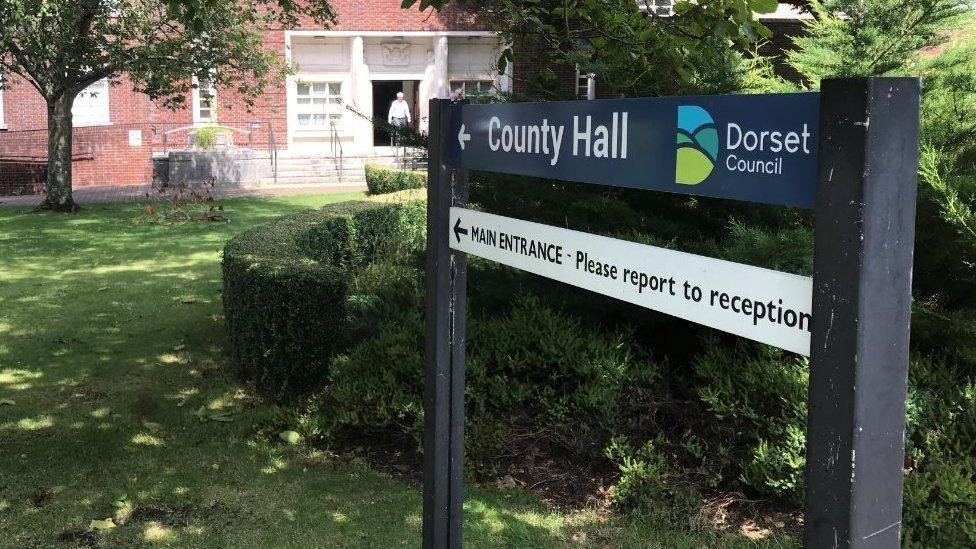Dorset Council moves to close gender gap in maths
- Published

Dorset Council said it would provide support to parents to "enhance" their own maths skills so they can help their children more
Girls in the Dorset Council area are falling behind boys in maths, the authority has warned.
Dorset Council said its latest figures show 66% of girls achieved the expected standard in maths - 6% below the national average.
In contrast, 70% of boys met the standard but still trailed the national average by 3%.
Amanda Davis, the council's corporate director for education and learning, called the figures "a worry"".
However, she insisted the gap could be closed.
She explained: "Nationally, girls already face challenges in maths and we want to do something to support our girls in Dorset.
"Although the stats are a worry, evidence shows that we can close the gap with concerted effort."
Ms Davis said there was "lots of brilliant maths teaching and learning" going on in Dorset schools, adding: "It would be great to see our girls start to imagine themselves as future scientists and mathematicians and I'm certain we can get there."
'Wake-up call'
To tackle the gender disparity in maths, Dorset Council said it would provide support to parents to "enhance" their own maths skills so they can help their children better with their learning.
The authority said Weymouth College was "key to this effort" by offering free multiplication training to parents.
The five-week training programme is available online or in person to any adult living in the Dorset Council area who did not achieve a grade C (or above) or equivalent in maths.
Schools can also get specialised training to help girls perform better in maths.
Byron Quayle, Dorset Council's children, education and early help lead, said: "These statistics are a wake-up call, and we must act swiftly to improve math outcomes across the board."

Follow BBC South on Facebook, external, Twitter, external, or Instagram, external. Send your story ideas to south.newsonline@bbc.co.uk.